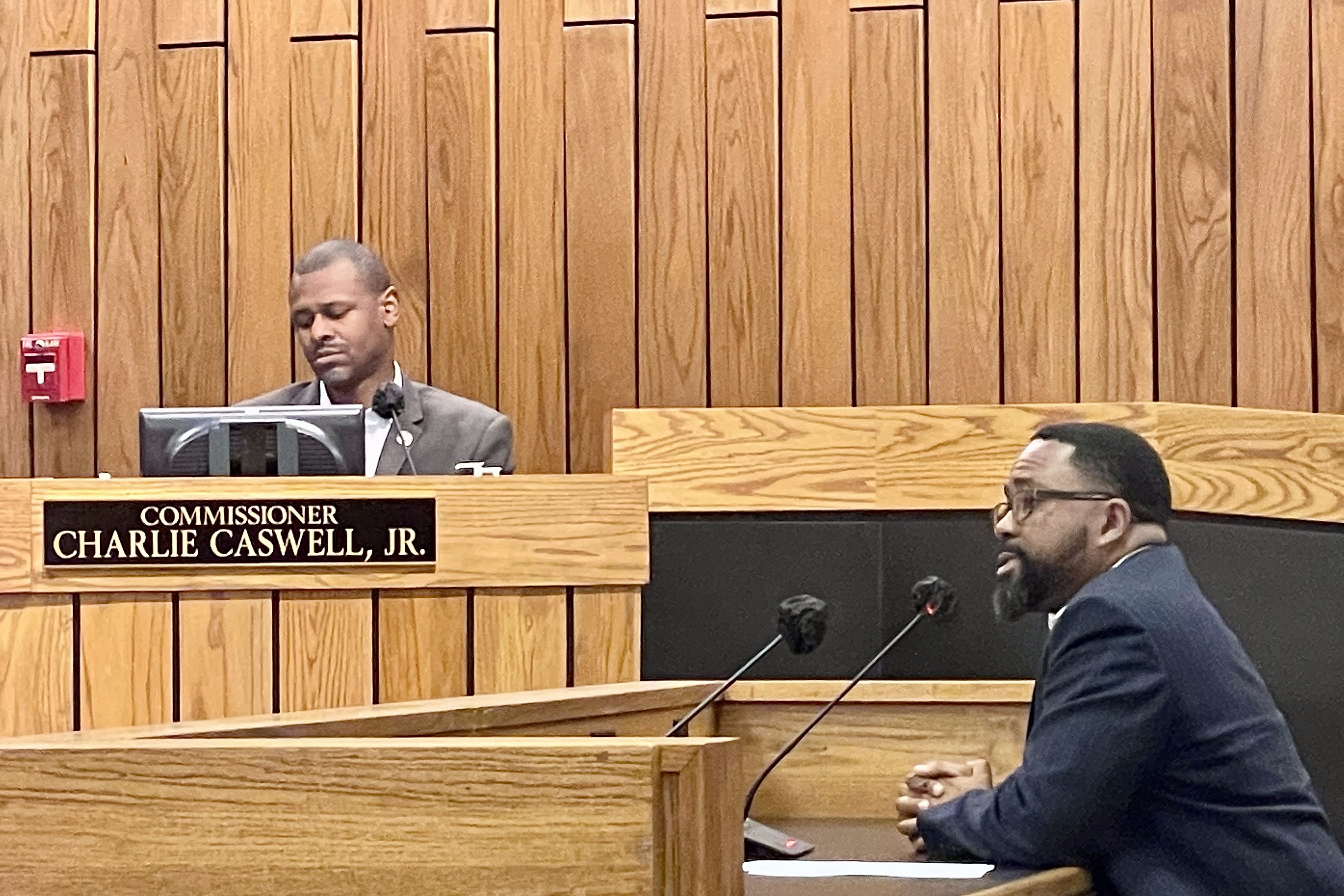Frank Johnson, a community activist and former educator, will represent District 7 on the Memphis-Shelby County Schools board for the next two years, commissioners decided Monday.
The Shelby County Commission chose Johnson to replace longtime board member Miska Clay Bibbs, who left the board in August after winning election to the commission. Clay Bibbs had represented District 7’s southeast Memphis neighborhoods including Parkway Village and Oakhaven since 2014.
Johnson is a South Memphis community activist with the Center for Transforming Communities, a nonprofit that describes itself as “dedicated to the holistic transformation of neighborhoods and communities in and around Memphis.” Before that, Johnson spent three years as a teacher at Memphis’ LaRose Elementary School, where most of his students experienced high levels of poverty and trauma, according to his application.
Johnson beat out one other applicant for the MSCS board seat: Jason Sharif, a longtime Memphis youth and community advocate and also a former teacher. Terrell Mitchell, a Memphis teacher who also applied for the appointment, was disqualified before his interview after the commission learned he lives outside of District 7.
During interviews with the county commission on Tuesday, Johnson said he plans to focus on rebuilding the district’s relationship with families, especially parents. Reflecting on his experiences teaching second, third, and fourth graders at LaRose, Johnson pledged to do his part as a school board member to make schools community hubs for not just students, but for parents, too.
“Our schools are not just students — they represent families,” Johnson said. “When we talk about students, we have to talk about families, and we have to talk about communities as a whole.”
Johnson also promised to put teachers at the forefront of his decisions as a board member.
“We have to start listening to our teachers and the people in our schools dealing with students every day,” he said.
Johnson will join the board at a pivotal moment as it embarks on the district’s first national superintendent search in over a decade. The board is also in the midst of internal transitions: Johnson is the third new member in less than two months. Keith Williams and Amber Huett-Garcia joined the board in August after winning election in Districts 6 and 8.
Given the recent upheaval within the school board and the district because of COVID and Superintendent Joris Ray’s resignation, Johnson said his first move as a board member is a listening tour with stops at every District 7 school so that he can gauge how to better help children who are suffering from lingering pandemic trauma and other important community issues like poverty.
“We’ve got to get a reading on what’s happening with our students,” Johnson said. “I want to talk to the principals; I want to talk to the teachers to know exactly what the needs are.”
Johnson believes talking to the community will better prepare him to help the district move forward. Asked how he would address MSCS’ low literacy rates and standardized test scores, Johnson said the board should think about the issues children face outside of school that prevent them from learning, such as housing and food insecurity or mental health struggles, and partner with community organizations to address those issues.
Johnson said he hopes the next superintendent has a deep understanding of the state’s largest school district and also will listen to the community and be willing to adapt their leadership and decisions based on what they hear.
“We cannot have a top-down dictatorship,” Johnson said, adding that the next superintendent should stand strong against what he believes are “attacks” from the state, such as its new private school voucher program.
Johnson also advocated for increased funding for MSCS, calling on the city to chip in to help the district address its hundreds of millions of dollars in deferred facility maintenance instead of being forced to delay construction projects or close community schools that often serve as the heart of neighborhoods.
“They do need to invest in our school system, and we need to start some type of petition or rally to get the city to pony up some money for our students,” he said.
Samantha West is a reporter for Chalkbeat Tennessee, where she covers K-12 education in Memphis. Connect with Samantha at swest@chalkbeat.org.







